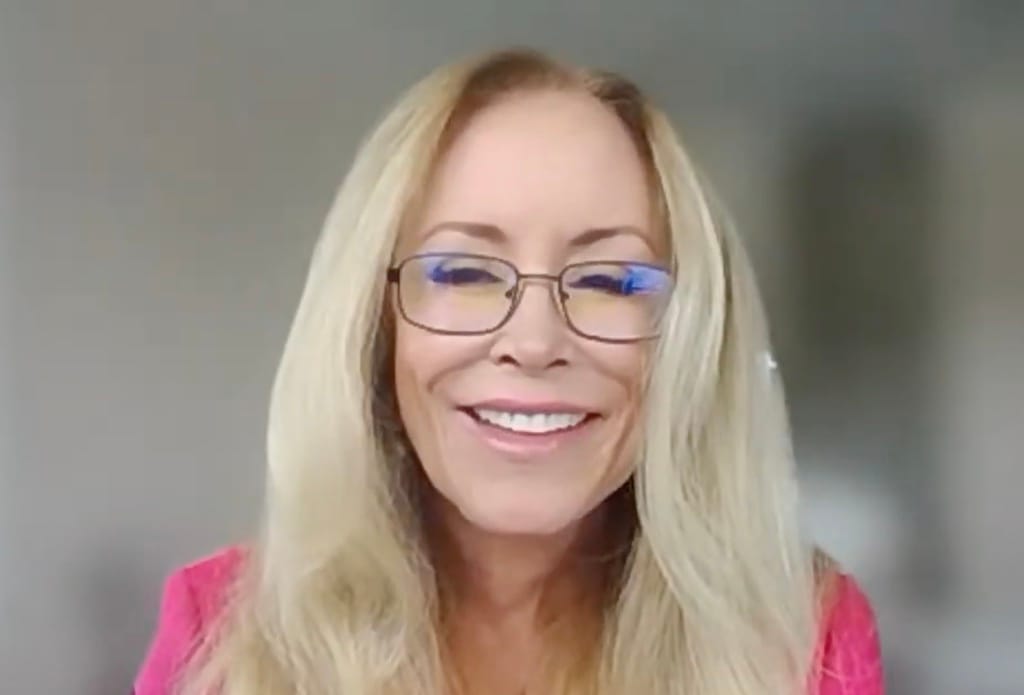Improved Age Verification Allows States to Consider Restricting Social Media
Constitutional issues leading courts to strike down age verification law are still present, said EFF.
Broadband Breakfast

WASHINGTON, November 20, 2023 — A Utah law requiring age verification for social media accounts is likely to face First Amendment lawsuits, experts warned during an online panel Wednesday hosted by Broadband Breakfast.
The law, set to take effect in March 2024, mandates that all social media users in Utah verify their age and imposes additional restrictions on minors’ accounts.
The Utah law raises the same constitutional issues that have led courts to strike down similar laws requiring age verification, said Aaron Mackey, free speech and transparency litigation director at the non-profit Electronic Frontier Foundation.
“What you have done is you have substantially burdened everyone’s First Amendment right to access information online that includes both adults and minors,” Mackey said. “You make no difference between the autonomy and First Amendment rights of older teens and young adults” versus young children, he said.
But Donna Rice Hughes, CEO of Enough is Enough, contended that age verification technology has successfully restricted minors’ access to pornography and could be applied to social media as well.
“Utah was one of the first states [to] have age verification technology in place to keep minor children under the age of 18 off of porn sites and it’s working,” she said.
Tony Allen, executive director of Age Check Certification Scheme, agreed that age verification systems had progressed considerably from a generation ago, when the Supreme Court in 2002’s Ashcroft v. American Civil Liberties Union, struck down the 1998 Child Online Protection Act. The law had been designed to shield minors from indecent material, but the court ruled that age-verification methods often failed at that task.
Andrew Zack, policy manager at the Family Online Safety Institute, said that his organization he welcomed interest in youth safety policies from Utah.
But Zack said, “We still have some concerns about the potential unintended consequences that come with this law,” worrying particularly about potential unintended consequences for teen privacy and expression rights.
Taylor Barkley, director of technology and innovation at the Center for Growth and Opportunity, highlighted the importance of understanding the specific problems the law aims to address. “Policy Solutions have trade-offs.” urging that solutions be tailored to the problems identified.
Panelists generally agreed that comprehensive data privacy legislation could help address social media concerns without facing the same First Amendment hurdles.
Our Broadband Breakfast Live Online events take place on Wednesday at 12 Noon ET. Watch the event on Broadband Breakfast, or REGISTER HERE to join the conversation.


Wednesday, November 15, 2023 – Social Media for Kids in Utah
In March 2023, Utah became the first state to adopt laws regulating kids’ access to social media. This legislative stride was rapidly followed by several states, including Arkansas, Illinois, Louisiana, and Mississippi, with numerous others contemplating similar measures. For nearly two decades, social media platforms enjoyed unbridled growth and influence. The landscape is now changing as lawmakers become more active in shaping the future of digital communication. This transformation calls for a nuanced evaluation of the current state of social media in the United States, particularly in light of Utah’s pioneering role. Is age verification the right way to go? What are the broader implications of this regulatory trend for the future of digital communication and online privacy across the country?
Panelists
- Andrew Zack, Policy Manager, Family Online Safety Institute
- Donna Rice Hughes, President and CEO of Enough Is Enough
- Taylor Barkley, Director of Technology and Innovation, Center for Growth and Opportunity
- Tony Allen, Executive Director, Age Check Certification Scheme
- Aaron Mackey, Free Speech and Transparency Litigation Director, Electronic Frontier Foundation
- Drew Clark (moderator), Editor and Publisher, Broadband Breakfast
Panelist resources
- Utah Protecting Minors Online, State of Utah web site
- Opinion: Does Utah’s social media law respect teens’ rights?, Stephen Balkam, Deseret News
- Twitter thread by Taylor Barkley
- Good Digital Parenting Resources, Family Online Safety Institute
- Coming to Terms with Age Assurance, Family Online Safety Institute
- Making Sense of Age Assurance: Enabling Safer Online Experiences, Family Online Safety Institute
- Social Media and Minors, Center for Growth and Opportunity
- Clicks and Codes: Social Media Awareness Legislation in the States, Center for Growth and Opportunity
- What Should Policymakers Do about Social Media and Minors?, Center for Growth and Opportunity
- Internet Safety 101– Enough Is Enough’s designated website to educate, equip and empower parents and caregiversInternet Safety 101 Downloadable Parent Quick Guides and Resources, Enough is Enough
- Rein In Big Tech, 30 second shararable clip from Enough is Enough
- Rein in Big Tech for the sake of our children, Donna Rice Hughes, Washington Times
- Treat Big Tech like Big Tobacco to protect our kids, Donna Rice Hughes, Fox News
- To Address Online Harms, We Must Consider Privacy First, Electronic Frontier Foundation
Andrew Zack is the Policy Manager for the Family Online Safety Institute, leading policy and research work relating to online safety issues, laws, and regulations. He works with federal and state legislatures, relevant federal agencies, and industry leaders to develop and advance policies that promote safe and positive online experience for families. Andrew joined FOSI after five years in Senator Ed Markey’s office, where he worked primarily on education, child welfare, and disability policies. Andrew studied Government and Psychology at the College of William and Mary.
Donna Rice Hughes, President and CEO of Enough Is Enough is an internationally known Internet safety expert, author, speaker and producer. Her vision, expertise and advocacy helped to birth the Internet safety movement in America at the advent of the digital age. Since 1994, she has been a pioneering leader on the frontlines of U.S. efforts to make the internet safer for children and families by implementing a three-pronged strategy of the public, the technology industry and legal community sharing the responsibility to protect children online.
Taylor Barkley is the Director of Technology and Innovation at the Center for Growth and Opportunity where he manages the research agenda, strategy, and represents the technology and innovation portfolio. His primary research and expertise are at the intersection of culture, technology, and innovation. Prior roles in tech policy have been at Stand Together, the Competitive Enterprise Institute, and the Mercatus Center at George Mason University.
Tony Allen a Chartered Trading Standards Practitioner and acknowledged specialist in age restricted sales law and practice. He is the Chair of the UK Government’s Expert Panel on Age Restrictions and Executive Director of a UKAS accredited conformity assessment body specialising in age and identity assurance testing and certification. He is the Technical Editor of the current international standard for Age Assurance Systems.
Aaron Mackey is EFF’s Free Speech and Transparency Litigation Director. He helps lead cases advancing free speech, anonymity, and privacy online while also working to increase public access to government records. Before joining EFF in 2015, Aaron was in Washington, D.C. where he worked on speech, privacy, and freedom of information issues at the Reporters Committee for Freedom of the Press and the Institute for Public Representation at Georgetown Law
Breakfast Media LLC CEO Drew Clark has led the Broadband Breakfast community since 2008. An early proponent of better broadband, better lives, he initially founded the Broadband Census crowdsourcing campaign for broadband data. As Editor and Publisher, Clark presides over the leading media company advocating for higher-capacity internet everywhere through topical, timely and intelligent coverage. Clark also served as head of the Partnership for a Connected Illinois, a state broadband initiative.

WATCH HERE, or on YouTube, Twitter and Facebook.

As with all Broadband Breakfast Live Online events, the FREE webcasts will take place at 12 Noon ET on Wednesday.
SUBSCRIBE to the Broadband Breakfast YouTube channel. That way, you will be notified when events go live. Watch on YouTube, Twitter and Facebook.
See a complete list of upcoming and past Broadband Breakfast Live Online events.









Member discussion